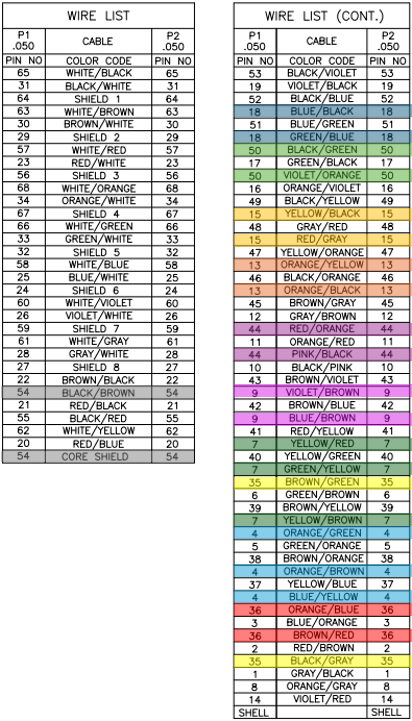Solution
On some electrical cable datasheets, the wire list will feature duplicate pins that contain different twisted cable pairs. This is an intentional design choice that allows for multiple cables to be shorted together and terminated at the same connector pin. This approach is commonly used to route several wires to a shared ground reference, such as digital or analog ground. This results in a minimised number of pins, while maintaining signal integrity.
The wire list document for the SH68F-68F Cable contains information such as shielded pairs and colour codes. The image below highlights the duplicate pairs in this cable:

For example, please see the twisted cable pairs associated with Pin 44 (dark purple):
A wire pair contains:
Pin 44 and Pin 11
For example, Pin 11 is carrying the digital signal, and it's twisted with Pin 44, which is connected to digital ground.
Another wire pair contains:
Pin 44 and Pin 10
For example, the same digital ground pin is used again, but this time it is twisted with Pin 10, which is carrying a different digital signal.
Although Pin 44 is used in both Pair 11 and Pair 12, it's twisted separately with different signal lines.